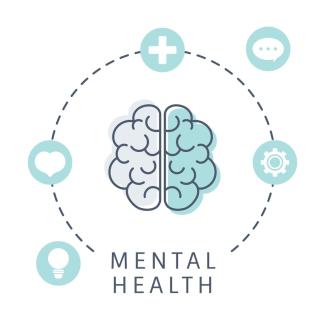
Chronic stress can indeed have a detrimental effect on the immune system. It can weaken your body's ability to defend itself against illnesses and infections. To prevent chronic stress from negatively impacting your immunity, here are some strategies you can consider:
- Stress Management Techniques:
- Meditation and Mindfulness: These practices can help you stay present, reduce anxiety, and improve overall well-being.
- Deep Breathing: Deep, slow breaths can trigger the body's relaxation response and reduce stress.
- Progressive Muscle Relaxation: This technique involves tensing and then relaxing muscle groups, helping to release physical tension associated with stress.
- Regular Exercise: Physical activity can boost the immune system, reduce stress, and improve overall health. Aim for at least 150 minutes of moderate-intensity exercise each week.
- Healthy Diet:
- Eat a balanced diet with plenty of fruits and vegetables to provide essential nutrients to support your immune system.
- Avoid excessive caffeine, sugar, and processed foods, which can exacerbate stress.
- Adequate Sleep:
- Prioritize quality sleep to allow your body to repair and rejuvenate. Aim for 7-9 hours of restful sleep per night.
- Social Support:
- Maintain strong social connections with friends and family. Talking to someone you trust can help you cope with stress.
- Time Management:
- Organize your time and tasks effectively to reduce feelings of overwhelm and pressure.
- Limit Stressors:
- Identify sources of chronic stress in your life and work on reducing or eliminating them. This might involve setting boundaries, saying no when necessary, or seeking professional help for difficult issues.
- Mind-Body Practices:
- Practices like yoga and tai chi combine physical movement, mindfulness, and deep breathing, promoting relaxation and reducing stress.
- Professional Help:
- If you're struggling with chronic stress and it's severely affecting your health, don't hesitate to seek help from a mental health professional. Therapy or counseling can be highly effective.
- Limit Stimulants and Alcohol: Excessive consumption of caffeine, nicotine, or alcohol can worsen stress. Limit your intake, especially in stressful periods.
- Stay Informed and Make Informed Choices:
- Avoid excessive exposure to stressful news and information. Stay informed but manage your media consumption to reduce stress.
- Hygiene and Safety: Follow recommended hygiene practices and safety measures, especially during times of infectious disease outbreaks, to reduce the stress associated with health concerns.
- Immune-Boosting Supplements: Consult with a healthcare professional before taking supplements, but some vitamins and minerals, like vitamin C, vitamin D, and zinc, can support your immune system.
Remember, managing chronic stress is a personal journey, and what works best for one person may not work for another. It's important to find the strategies and techniques that work for you and make them a part of your daily routine. If stress persists or becomes overwhelming, seeking professional help is crucial to address underlying issues and develop effective coping strategies.






